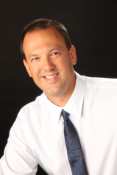Reinhold Niebuhr (1892 – 1971) was the American theologian and public figure credited with the often quoted “serenity prayer” which reads “God, grant me the serenity to accept the things I cannot change, The courage to change the things I can, And wisdom to know the difference.”
So…which category does your career path fall into? For some pharmacists, the thinking is that “once retail, always retail” or “once hospital, always hospital.” But the fact of the matter is that many pharmacists work successfully in both realms, OR have managed to transition from one to the other. This post is my second (to see the first one click here) on the topic of switching from retail to hospital pharmacy. I wanted to give my readers some more perspectives on this subject, so I reached out to my new friend and North Carolina pharmacist Adam Overberg.
It is a privilege and honor to have Adam here to answer some questions about moving from a retail pharmacy setting to hospital employment. Feel free to comment below with any questions you may have for Adam on this matter.
1) Adam thanks for taking the time to talk with us. As I understand you began your career in the retail/community pharmacy setting. Can you tell us about that and how long you did it?
I started with Walgreens as an intern in 2007, after my first year of pharmacy school. I worked mostly on breaks and holidays throughout the rest of school, then continued as a full-time floater pharmacist once I got licensed in 2010. I floated for about six months before being assigned to a store as a part-time (3rd) staff pharmacist. About half of my shifts were still floating. In March of 2011, I earned a full-time staff assignment to another store, which was being transitioned into an HIV-specialty store. I moved to another state in June 2011, which, as Walgreens didn’t have an open position at the time, was the end of my career in retail.
2) What was your overall impression of working in the retail setting?
Call me crazy, but I really enjoyed retail the majority of the time. At its best, retail is fast-paced, every day is different, and there is abundant human interaction, even if it’s sometimes frustrating or irritating, and these are all things I need to be happy in my job. I often got big rush from solving a particularly difficult insurance issue, helping a patient with a minor problem avoid an unnecessary office visit (or sending a patient with a serious problem to the ED – amazing what people will ignore to avoid seeing a physician), or making a successful intervention to avert a drug interaction, improve compliance, or make a medication or regimen more tolerable to a patient. Teaching is important to me, and I take pride in tailoring a counseling session to the needs, eduction level, and socioeconomic status of the target audience – patient or provider.
The trials and tribulations of retail are well chronicled elsewhere, so I won’t heap any more abuse on that particular deceased equine friend. I’m characteristic of my generation, however, in that I take criticism personally and need a good bit of feedback (and, let’s be honest, affirmation) to do well. As any community pharmacist can tell you, that’s in scare supply in retail, and one has to learn not to take the abuse and criticisms personally. I’m not sure if I ever quite succeeded in that. I still vividly remember every single major conflict I had, both with patients and with providers, and to this day, I have to remind myself that I did the right thing for the patient and for my ethical and professional obligations to keep the memories from affecting me. I would guess I’m not alone in these issues, and both emotional and professional support from corporate is overwhelmingly lacking or nonexistent – and coworkers often just exacerbate it with their own bitterness. Left unaddressed, and in concert with all the more mundane stresses, it’s difficult not to become jaded and unhappy. Even if you generally like retail, it’s next to impossible not to dread going to work and leaving completely exhausted and mad at the world.
I think it’s unfortunate that community practice is so often the fallback or default career for many in the profession. Just as not everyone is cut out for residency and clinical practice, so too is not everyone possessed of the constitution and personality for retail practice. This isn’t earthshaking, or shouldn’t be, but class after class of pharmacy students is pushed out into the working world with very little in the way of career counseling. Retail is, like it or not, still the most visible bastion of our profession, and consigning a new pharmacist to a career they’re not prepared for is a disservice to the individual and the profession.
3) What led you to think about a shift to a hospital career?
I made the jump to inpatient pharmacy as much for practical reasons as professional ones. I was moving to a new state, and I looked first to stay with Walgreens. When the local market didn’t have any positions available, I broadened my search and found the job I now have. Incidentally, I felt I was losing my knowledge from school and I also didn’t see much room for advancement at Walgreens (I have no management ambitions), so a career change made sense from that perspective as well. If I hadn’t moved, I probably would have stayed in retail, perhaps for the remainder of my career.
4) Were you at all concerned about making that transition?
I was concerned at first, but I’m a quick learner and there really weren’t a lot of other options for employment in my new town, so that helped mitigate my concerns quite a bit. What concerned me the most was the perception I had that inpatient practice was way harder than community practice and that you had to have a strong clinical background – to be honest, I didn’t work as hard as I could have on inpatient-focused topics and rotations because I anticipated a career in the community. My concerns were totally laid to rest once I actually started working, both because at least half of my coworkers had come from careers in community and because the work just simply wasn’t what I made it out to be. Some of the medications and dosages are different, some of the professional interactions are different, but good customer service skills and an ability to quickly assess a situation and make a sound clinical judgment are useful in any setting. In fact, you often end up answering the same kinds of questions, except from physicians and nurses instead of the general public.
5) In your particular situation, what do you think was the most difficult aspect of transitioning from retail to hospital?
I honestly didn’t have much of an issue with drugs or drug info. I always have access to online clinical references, and my facility has a number of protocols for pharmacokinetics, anticoagulation, and renal dosing, among other things, that take most of the guesswork and ambiguity (and some of the difficulty) out of clinical practice. Honestly, the hardest thing for me was learning new physicians’ signatures (since you don’t have the benefit of office information on a hardcopy Rx), the computer system (much more antiquated than I was used to), and how to interpret inpatient orders (new acronyms, standard dose administration times, etc). I trained with a staff pharmacist for a couple months before I went solo, and I was also training for a purely order-entry job that really wasn’t all that different from retail, so that made the transition easier as well.
6) If you were to give any advice to a pharmacist looking to make that same transition, what advice would you give?
I would absolutely recommend considering making the jump. The working conditions are incomparable – I sit a good part of the day, I usually get time for a lunch, I can get up and use the bathroom whenever I need (and I don’t have to use the same facilities as the general public), and there’s no drive-through bell or insurance to deal with. There’s opportunity for advancement and innovation in clinical services, and I derive a lot of satisfaction from nailing a vancomycin regimen or Coumadin dose. On the other hand, unless you’re in a major academic medical center or you have an unusually pharmacy-forward medical staff, professional recognition and acceptance can be hard to come by. I mean, the cafeteria staff and housekeeping often get as many or more thank-yous as pharmacy, and fighting for that recognition can be tough. The pay is also substantially less – I took about a 20-25% pay cut, but results may vary – and the benefits are fairly similar. If you can get by that, though, the jump is worth the risk. It’s still a revelation every time I realize I’m excited to go to work and not making a mad rush for the door at quitting time.
7) Do you think you will ever go back to retail?
I never anticipated a career in hospital pharmacy and the job market is getting ever tighter, so I can’t rule anything out, but it’s unlikely that I would ever go back to retail full-time by choice. I’m working towards BCPS certification this year, and I’ll be precepting my first pharmacy students in the fall – both are goals I’ve had for a long time and that I can attain more easily on the inpatient side. Just as importantly, I can’t in good conscience be the corporate shill or company man the chains seem to want – I always made the distinction that I was a “pharmacist at Walgreens” and not a “Walgreens pharmacist.” In the right situation, I could see maybe taking on some part-time or PRN work or even an ownership stake in an independent or compounding pharmacy, but that’s probably years, if not decades away. As long as inpatient pharmacy continues to meet my needs, retail is not in the cards.
Once again I want to thank both Adam and Eric (previous blog post) for participating in this interview. The topic is timely and your answers have been very helpful.
Follow Adam on TWITTER!
©Jason Poquette and The Honest Apothecary. Unauthorized use and/or duplication of this material without express and written permission from this blog’s author and/or owner is strictly prohibited. Excerpts and links may be used, provided that full and clear credit is given to Jason Poquette and The Honest Apothecary with appropriate and specific direction to the original content.
Adam Overgerg Hospital Pharmacy Pharmacy career prescriptions Retail pharmacy
Last modified: April 17, 2023
















